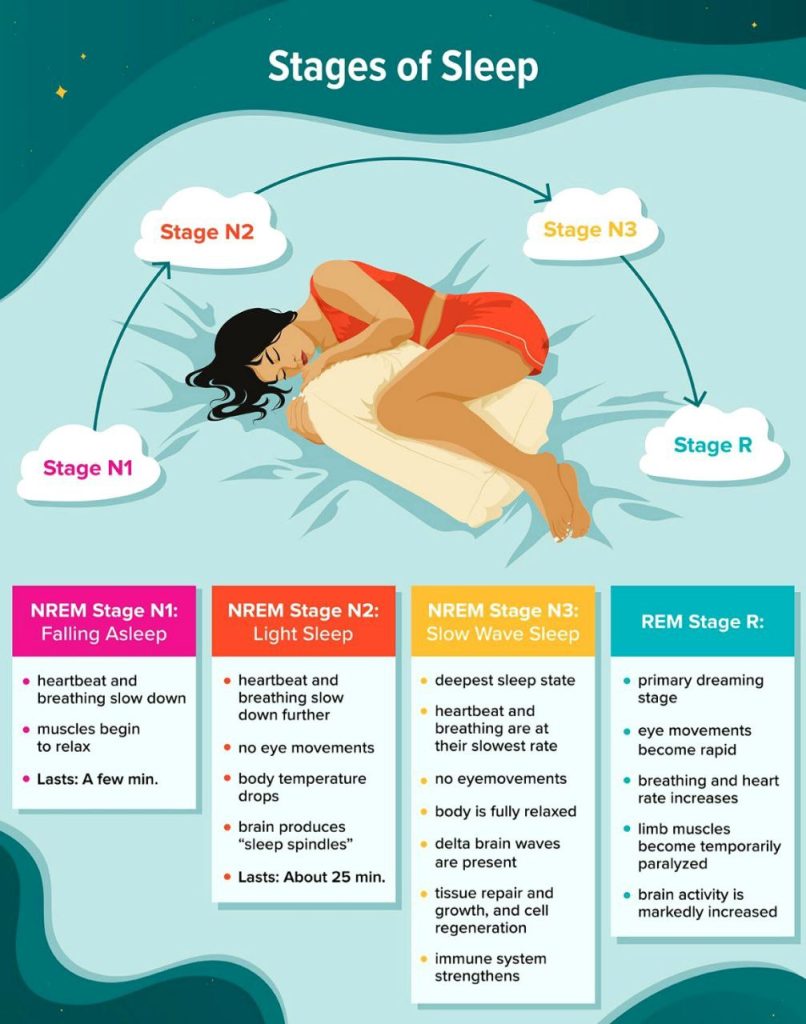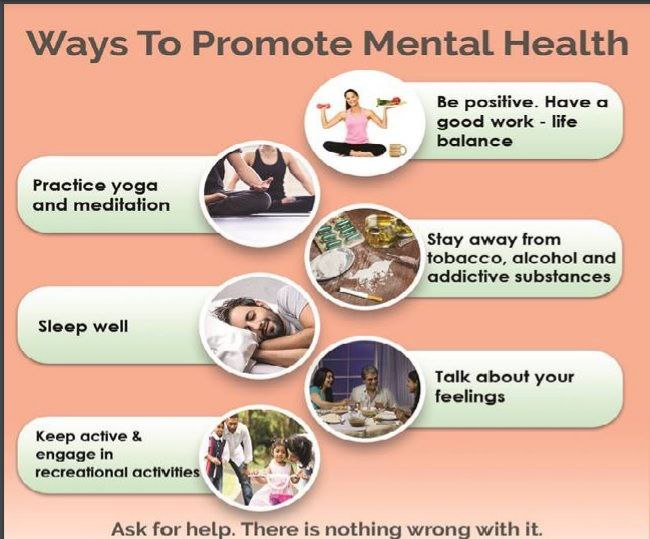Well, most of us are cognizant of beauty sleep, yet numerous people are a neophyte in adoring the significance of sleep for better health. There’s a direct double-headed spear-like relation between sleep and our overall health. Sleep loss affects our psychological state and mental health. And those with mental health problems are more likely to have insomnia or other sleep complications.
Still curious? Come let’s get enlightened.
This article will take you through the aspects enlisted below:
- Different stages of sleep
- Correlation Between Mental Health And Sleep
- Sleep disorder status In The World
- Short-term And Chronic Effects
- Available Cure And Its Management
Different Stages of Sleep
When you sleep, your brain goes through natural cycles of exertion. There are a total of four stages of sleep, divided into two phases: Non-Rapid Eye Movement (Non-REM) sleep and Rapid Eye Movement (REM) sleep.

Non-REM sleep happens first and includes three stages- NREM Stage N1, NREM stage N2, and NREM stage N3.
NREM N1 stage of Non-REM sleep is the typical transition from insomnia to sleep and generally lasts only a few minutes. NREM Stage N1 is when the sleep is very light.
NREM stage N2, and NREM stage N3 the last two stages of Non- REM sleep is when you sleep deeply. It’s quite difficult to wake up during this stage of sleep.
Generally, it takes around 1 or 1.5 hrs after sleeping to fall under REM sleep. REM sleep is when you tend to have picturesque dreams. As you sleep, your body periodically moves through Non-REM and REM sleep. You generally start the sleep cycle with N1 of Non-REM sleep and then you pass through the other stages of Non-REM sleep, followed by a short period of REM sleep and the cycle begins again at N1.
About 90 to 110 minutes is taken to complete one full sleep cycle. Your first REM period is short. As the night goes on, you’ll have longer REM sleep and smaller deep sleep.
Each stage plays a part in brain health, allowing exertion in a different zone of the brain to ramp up or down and enabling better thinking, learning, and memory enhancement. Research has also uncovered that brain activity during sleep profoundly influences emotional and mental health. A good amount of sleep especially REM helps the brain’s processing of emotional information.
During sleep, the brain works to assess and recall thoughts and memories, and it appears that a lack of sleep is detrimental to the consolidation of positive emotional thoughts. This can impact mood and emotional reactivity and is tied to mental health diseases and their associated complications.
Correlation Between Mental Health And Sleep
Mental health conditions can get worse with sleep and sleep problem can also lead to changes in mental health. Lack of sleep may spark the onset of certain psychological conditions. Because of this indirect relationship between your sleep patterns and your mental state, it’s important to talk to your medical advisor if you’re having problems falling or staying asleep. They can recommend some treatments that are suitable for any underpinning sleep disturbance that might be compromising your capability to rest. Treating your sleep issues beforehand is important for your physical and mental well-being.
Short-term And Chronic Effects
Short-term consequences include increased stress responsivity, physical problems, reduced quality of life, emotional agony, mood swing, lack of cognition, poor memory and performance deficits, behavior problems, and other mental disorders.
Chronic effects include hypertension, weight-related issues, disturbed metabolism cycle, dyslipidemia, cardiovascular disorder (CVD), and gastrointestinal diseases.
Sleep Disorder Status In The World
Statistics About Sleep and Mental Health
- Across the world, 20% of the serious injuries that result from road accidents can be associated with driver sleepiness.
- Around 40 % of people with insomnia are also believed to be affected by a mental health condition.
- About 75 % of grown-ups with depression suffer from sleeplessness.
- More than 90% of people with post-traumatic stress disorder (PTSD) related to military combat have been set up to have symptoms of insomnia.
Available Cure And Its Management
Primary approaches like concentrating on lifestyle changes can help you get a better night’s sleep. Seeking professional aid in case the problem persists. There are numerous treatments available. Cognitive behavioral therapy for wakefulness (CBT-1), Stimulus control therapy, light therapy, and prescribed medicines. In addition to seeking help from medical professionals, there is also way that you can take on your own to ameliorate your sleep and well-being. Having good sleep, hygiene, or practices that support sleep is critical to staying rested and avoiding day drowsiness.

Some Simple Practices That Can Be Adopted
Limit napping Too much sleep during the day can affect your capability to fall or stay asleep at night. Naps of 20 to 30 minutes a day can help you feel more active and relaxed without interrupting your nocturnal sleep.
Establish a nightly routine A bedtime routine tells the body that it’s time for sleep. It’s desirable to go to bed at the same time each night and wake up at the same time every day.
Build a habit and stick to it Stick to a set of habits that help prepare you for rest each night. Like take a bath, read a book, or practice meditation to calm your body. Repeat these routines each night to help set the mood for a peaceful night’s sleep.
Avoid sleep interrupters Avoid caffeine or stimulants too close to bedtime. Consuming coffee, soda pop, or other caffeinated products in the late afternoon or evening can make it problematic to fall asleep.
Turning off your gadgets Playing or surfing on your phone or watching TV at bedtime can make it difficult to relax and settle down for sleep. Try setting limits on when you quit using your gadgets before bed.










Comments 1